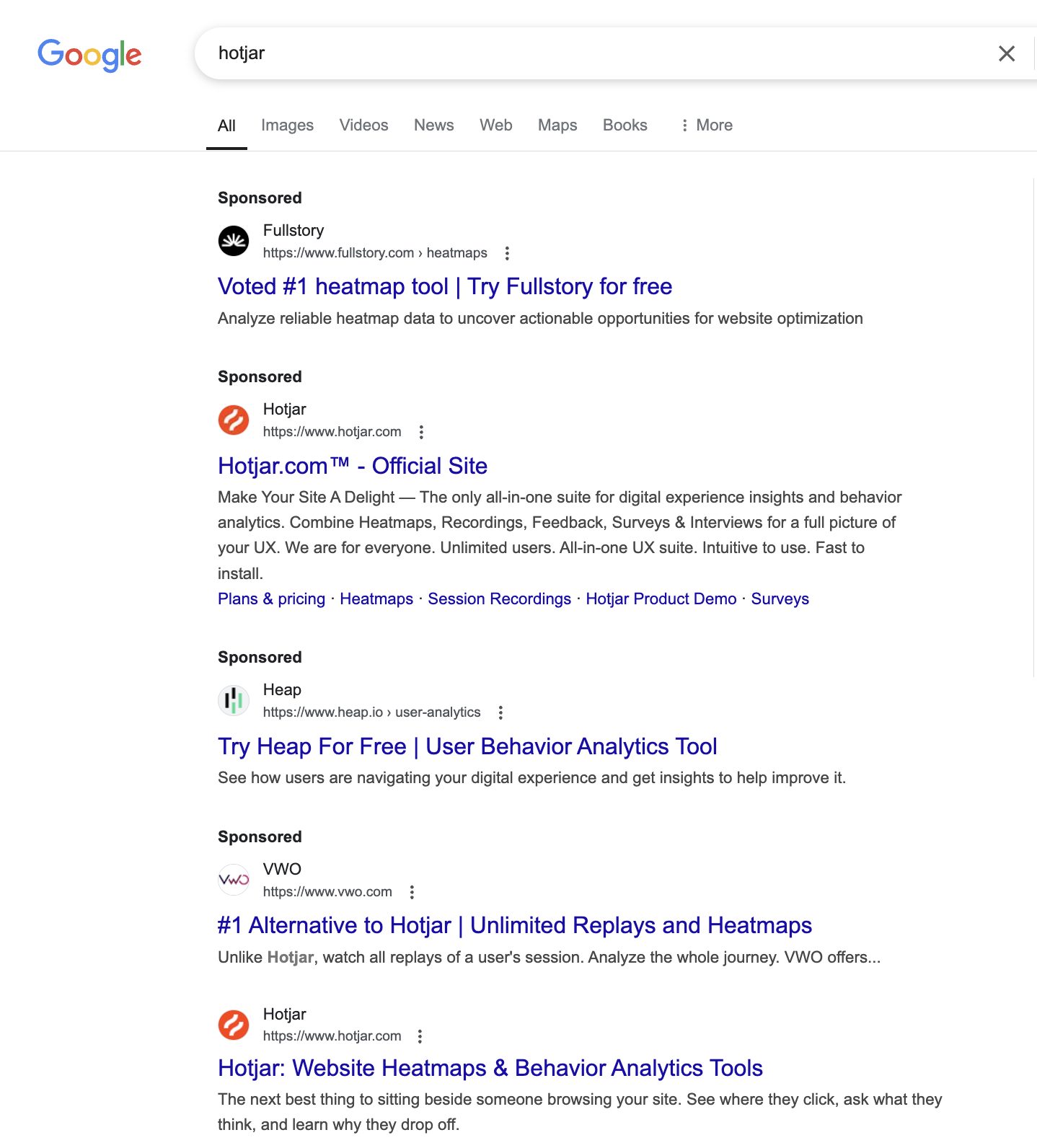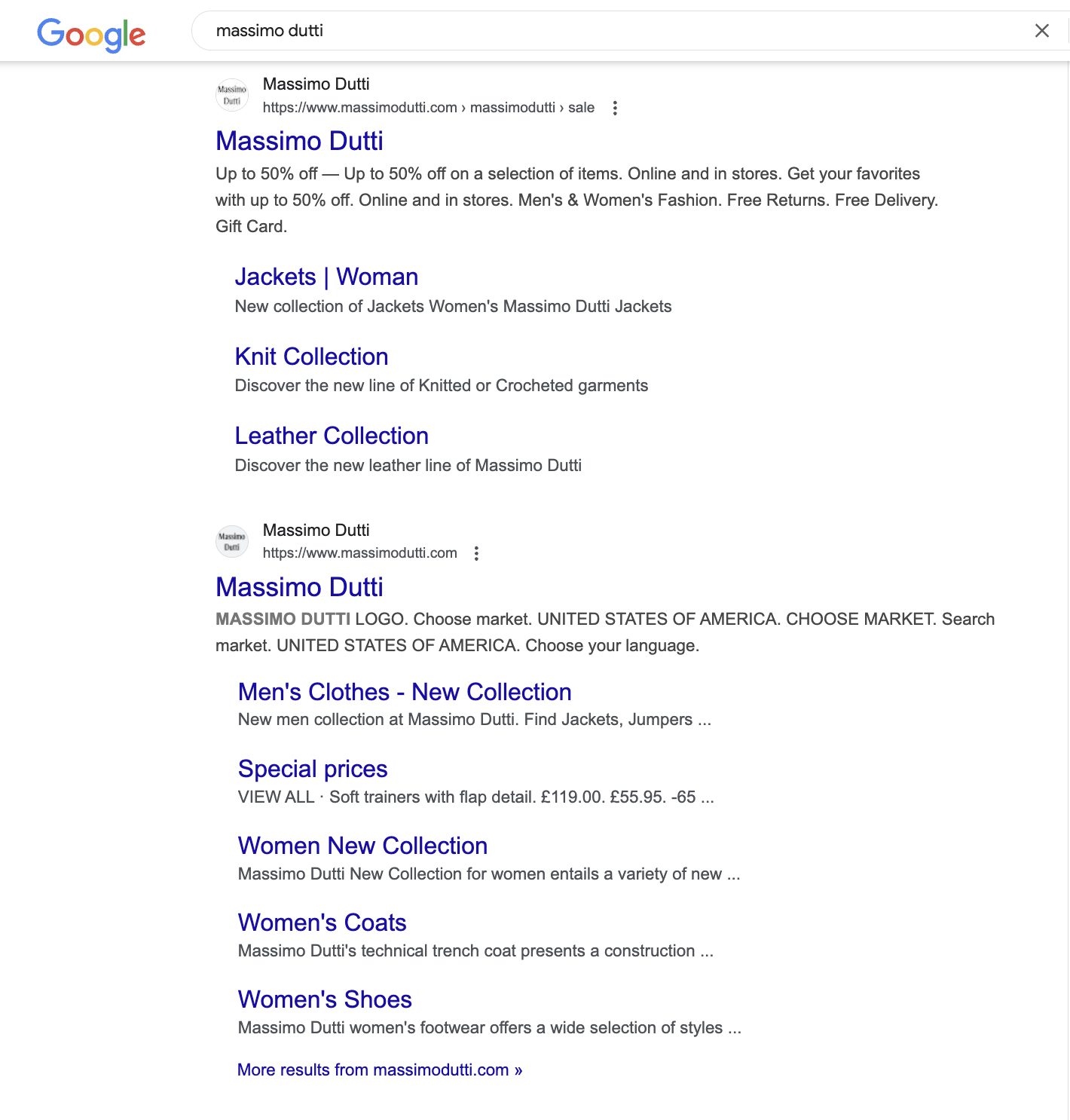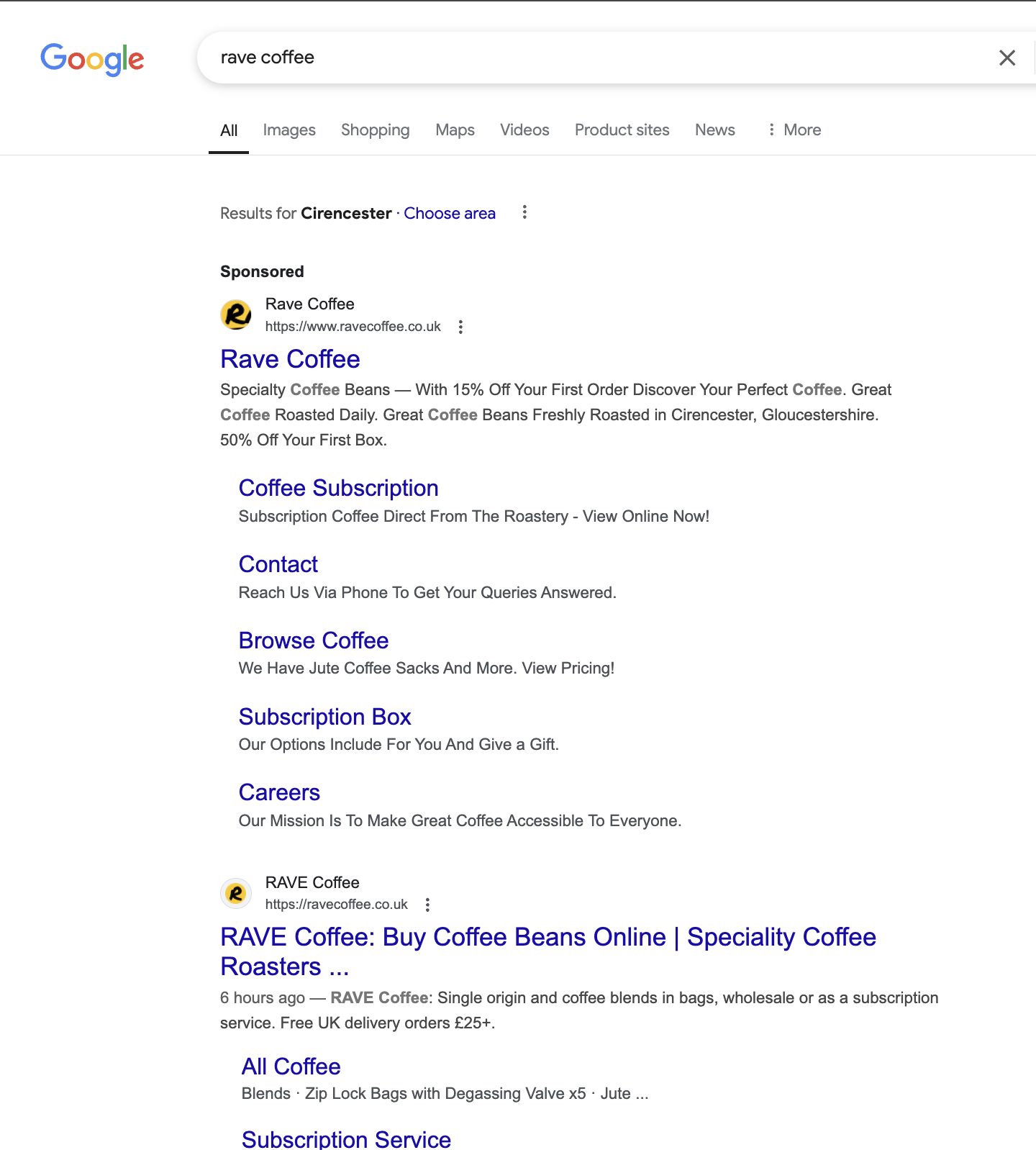January 28, 2025


Do you feel you’re wasting valuable marketing budget by bidding on your brand?
The debate over whether to bid on branded terms has long been a hot topic in the Google Ads community, frequently discussed by PPC professionals and in client conversations.
There is no universal answer, as the right approach depends on the specific circumstances of each ad account. Factors such as the competitive landscape and target KPIs play a crucial role in determining the best course of action.
In this article, we will explore the pros and cons of brand bidding and share our insights based on experience.
One of the primary reasons to bid on your brand is strong competition in paid search ads. Competitors’ ads can push your organic listing below several paid ads, making it harder for customers to find your website. Additionally, competitors may use top promotions to lure your loyal customers to their websites.
In these cases, bidding on your brand is highly recommended. This ensures your ad appears alongside or above competitors’ ads in sponsored positions, safeguarding your visibility. Typically, your cost per click (CPC) for branded terms will be significantly lower than what competitors pay to bid on your brand.
Many competitors intentionally bid on branded terms, particularly if your brand is well-known. Others may inadvertently target your brand through broad or phrase-match keywords.
A quick search for your brand name may not uncover all competitors targeting your brand. A more accurate assessment can be made using the Auction Insights report in Google Ads.

Beyond countering competitors, brand bidding also offers opportunities to drive your marketing goals more effectively. Bidding on your brand is particularly useful when promoting a product or service. By securing a prominent ad position, you can tailor ad copy to highlight the promotion.
This strategy is especially effective for short-term promotions where organic rankings may not yet exist. Bidding on branded terms ensures immediate visibility for your sale or offer.
An example of a promotion could be for significant sales periods for your business, such as January sales or Black Friday. Using a paid ad for this promo allows an advertiser to promote the sale details within the ad copy and ad extensions.

Another advantage of bidding on branded terms is increased ownership of the search engine results page (SERP). When you bid on your brand alongside a top organic ranking, Google allows two ads to appear above the organic listing. This establishes dominance on the page and drives clicks.
This strategy’s effectiveness depends on your budget and KPIs. If budgets or profit margins are tight, brand bidding may be less viable. However, if budget allows, it’s an aggressive and effective way to secure SERP ownership.

While brand bidding often delivers strong ROI due to high-intent customers and low CPCs, over-reliance can be counterproductive. Using brand bidding to inflate performance metrics may detract from optimising non-branded campaigns, which are crucial for growth.
Organic listings typically capture branded traffic, so over-investing in brand bidding can lead to wasted ad spend. Some agencies rely heavily on brand bidding to inflate paid media performance. To ensure transparency, brand and non-brand performance should always be reported separately. Brand campaigns should focus on achieving high impression share rather than conversion metrics.
Google’s automated bidding strategies can sometimes inflate brand CPCs. Testing manual bidding on branded terms can help control costs, although this approach requires more hands-on management.
Google has weighed in on this debate as well. In 2011, the company published an incrementality study claiming that 89% of paid search ad clicks were not replaced by organic clicks when ads were paused.
However, it’s important to approach such findings critically, as Google benefits from increased brand ad spend. Later analysis revealed that the study focused only on auctions with multiple competitors and excluded scenarios without competition. In these cases, paid clicks are more likely to cannibalise organic clicks. This study fuelled the ongoing debate over brand bidding and the extent of investment required.
As with most decisions in Google Ads, there is no definitive answer to whether you should bid on branded terms. Each strategy must be tested and informed by data.
If you’re unsure whether your brand bidding strategy aligns with your goals, or if you’re looking for expert Google Ads account management, we can help. At Fanatic, our team of PPC specialists will tailor a strategy that maximises ROI, ensures you stay ahead of competitors, and supports your growth. Get in touch on 0117 953 2003 or by filling out this form.